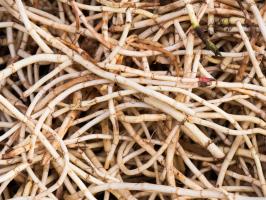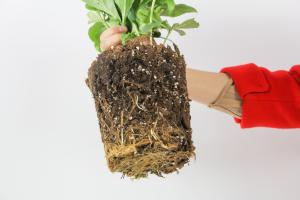Introduction
Pot plants are a common sight in many households around the world. They are often used for decorative purposes, to add a touch of greenery and life to a room. However, while pot plants can be aesthetically pleasing, there are some potential dangers associated with having them in your home. This article will explore the risks and benefits of owning pot plants.
Risks of Pot Plants
One of the primary risks associated with pot plants is the potential for poisoning. Some plants contain toxins that can be harmful to humans and animals if ingested. For example, the popular houseplant, the peace lily, contains calcium oxalate, which can cause severe irritation of the mouth and throat if eaten.
In addition to poisoning, pot plants can also be a hazard for individuals with allergies or respiratory issues. Certain plants, such as the rubber tree, release allergenic chemicals into the air that can trigger allergic reactions or exacerbate asthma symptoms.
Another concern with pot plants is the risk of mold growth. Potted plants require water to survive, and if they are over-watered or not properly drained, they can become a breeding ground for mold. This can lead to respiratory issues or make existing health conditions worse.
Benefits of Pot Plants
Despite the potential risks associated with pot plants, there are also many benefits to owning them. Studies have found that having plants in your home can improve air quality and increase oxygen levels, leading to greater overall health and well-being.
Pot plants can also have a positive impact on mental health. Studies have shown that spending time in nature or surrounded by plants can reduce stress and anxiety levels, improve mood, and enhance cognitive function.
Furthermore, pot plants are a sustainable and eco-friendly way to decorate your home. Indoor plants can help to purify the air by removing harmful toxins and pollutants, making them a more environmentally conscious choice than synthetic air fresheners or other chemical-based products.
Safety Tips for Pot Plants
If you do choose to have pot plants in your home, there are some steps you can take to minimize the risks:
Research potential plants before you buy them to ensure they are not toxic to humans or animals.
Keep pot plants out of reach of children or pets, or consider using hanging plants to prevent accidental ingestion.
Ensure your pot plants are well-drained to minimize the risk of mold growth.
Regularly clean and dust your plants, as well as their pots and surrounding areas, to prevent the buildup of allergens or toxins.
Consider using natural pest control methods, such as neem oil or ladybugs, to avoid exposure to harmful chemicals.
Conclusion
In conclusion, while there are some potential risks associated with having pot plants in your home, there are also many benefits to owning them. By taking some simple safety precautions, you can enjoy the beauty and health benefits of your pot plants while minimizing any potential dangers.

 how many times do yo...
how many times do yo... how many planted tre...
how many planted tre... how many pine trees ...
how many pine trees ... how many pecan trees...
how many pecan trees... how many plants comp...
how many plants comp... how many plants can ...
how many plants can ... how many plants and ...
how many plants and ... how many pepper plan...
how many pepper plan...

































